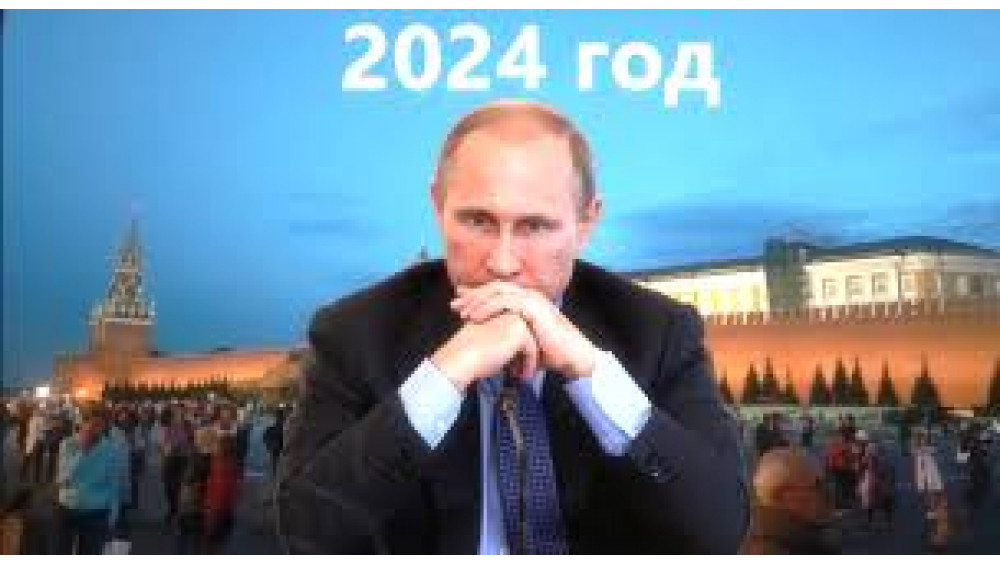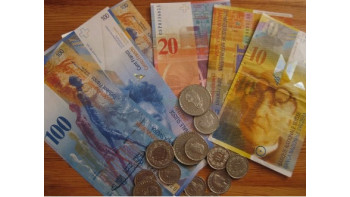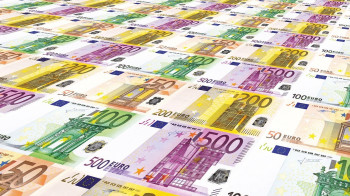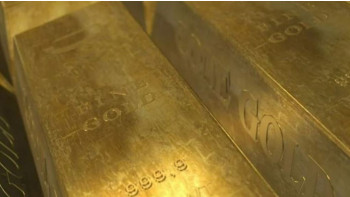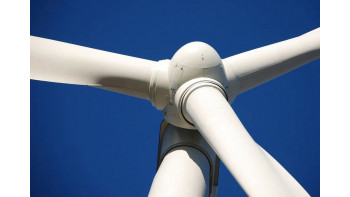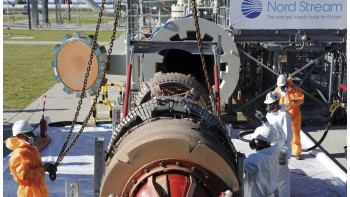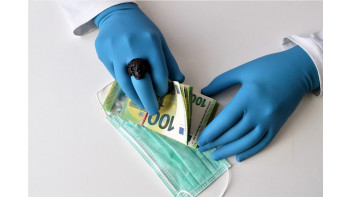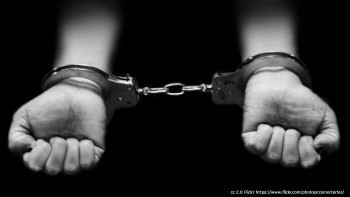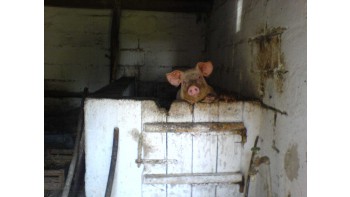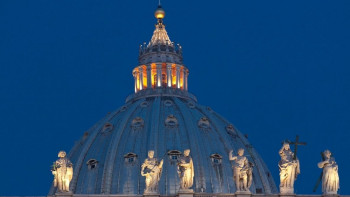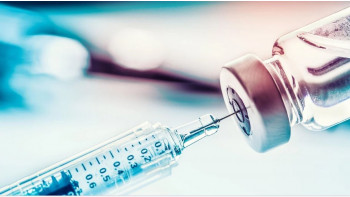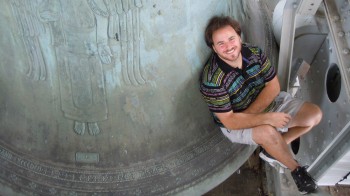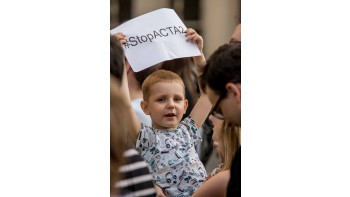Repairing a toxic regime
Vladimir Putin has been at the top of Russian leadership for over 20 years, and is second only to his idols, Joseph Stalin and Tsar Nikolai I. His worldview was largely formed during the Soviet era, so he is inclined to consider the world around him as hostile environment. Surrounded by a small entourage, he sees the rest as those trying to snatch power from him or even take his life. Putin's favorite toy has always been his dream of building a global Russian empire, and to this end, he has already committed multiple crimes in the international arena. At the same time, he created a repressive model within Russia to be able to slam on any form of dissent using his powerful security bloc, which has expanded to an unprecedented scale.
In such circumstances, Vladimir Putin, hostage to his fears, went for a large-scale constitutional reform, which is set to eventually result in sealing own lifelong rule. Although Putin has another four years in office until his fourth presidential term expires, he launched a blatant coup in order to absolutize his position at the top of the power pyramid.
Right after the end of the New Year holiday period, Putin delivered an address to the Federal Assembly, in which he resolutely outlined the political framework for Russia, at least for the coming decade.
The most prominent consequences of Putin's speech were the resignation of Dmitry Medvedev's government and the launch of a theatrical performance with constitutional amendments.
We can say that this is the heaviest political quake over the last decade, which led to the dismantling of the "tandemocracy" construction along with the last bits of hope that some semblance of political legitimacy of power will remain rather than becoming absolutely focused in Putin's hands.
But it was economic difficulties accumulating in the country and corroding Russian society from within that prompted Putin to take steps to break the "tandem".
A poll published in November 2019 revealing basic fears of the Russian population says 68% of respondents, mostly middle-aged and senior citizens, fear rising social injustice, while 63% of Russians fear lower incomes, and 58% – losing access to free health care, as well as price hikes.
In general, it's typical fears related to social protection that leave Russian masses anxious, while military conflicts in other regions of the world are of concern to only 20% of the population.
What do these figures say? They show that the head of government has been performing poorly since people are grumbling purely at the country's internal problems. People don't see any machinations of some external forces, of which Russian propaganda constantly tells them, glorifying Putin's "victories" over Russia's enemies on the Syrian, Venezuelan or Central African fronts. Ordinary people aren't interested in the president's agenda, while his rating doesn't seem to suffer much, fueled by injections of "success stories" in foreign policy. The population is concerned about their actual well-being, which is further deteriorating. Of course, that's including as a result of international sanctions caused by Russia's aggression against Ukraine involving Putin's army, security forces, and intelligence.
So there's pretty much nothing Medvedev can say to the embittered people as an excuse…
His legacy really does look sad. Some 21 million Russians, or every ninth citizen, live below poverty line of $180-190 per month.
Following a surge of pseudo-patriotism caused by the Crimea grab, western sanctions kicked in. In a pathetic Khrushchev-style boot-banging move, Russia launched an import substitution campaign. But the prices of goods that replaced the embargoed imports rose rapidly, while investments flew to Crimea at the cost of funding cuts for projects implemented across Russia. As a result, ordinary Russians found themselves in a deadlock of a bad life.
Higher VAT, the new norm on raising the retirement age, the protracted economic crisis, illustrated by Eastern Europe's lowest GDP growth rate of 1.3%, indicate that the country lacks structural reform. Instead, the grip is getting tougher, while Russia's male population is being cut off from pensions as many simply fail to live up to the updated retirement age. The investment climate remains terrible. According to the Corruption Perception Index, developed by the Transparency International, Russia takes the 138th spot in the ranking next to Iran and Papua New Guinea. Businesses complain about pressure exerted by law enforcers who seek to become company co-owners.
The lawlessness doesn't end there as we're witnessing oligarchs from the gangster 1990s being replaced by new predators – the "oligarch statesmen" devouring various sectors of the country's economy. At the top of Gazprom, Novatek, Rosneft, and VTB we can see Putin's old friends from St. Petersburg. They have long become indestructible and separated from the rest of society by an impenetrable wall.
So the resignation of Medvedev's toxic government became a matter of time for repairing the body of a battered Russian political vehicle.
"Political Reform" special operation
After addressing the nation, Putin immediately met with PM Medvedev, who said that "not everything worked out" in achieving the targets set for the eight years, so the Cabinet resigns to make sure that the president's blooming reformist initiatives are implemented.
No one actually reprimanded Medvedev after he resigned over incompetent policies but turned out to be so "understanding". Instead, he was offered to dwell in a non-public plane after the post of deputy chairman of the Security Council was created just for him. This is a consultative body dealing with issues related to the "protection of the constitutional system of the Russian Federation", so Medvedev was appointed to the newly created honorary position there to create the appearance of him remaining part of the team.
Along with the head of government, his deputies and all ministers resigned as well, but, as a week-long pause showed after the introduction of new Prime Minister Mikhail Mishustin, not everyone was eventually sacked.
As a result, on January 21, the new cabinet composition was announced. Some 50% of government positions were retaken by old-timers. The security and defense bloc represented by Shoigu, Lavrov, Kolokoltsev and Zinichev remained unchanged, while vice prime ministers and the entire socio-economic bloc were substantially updated. Judging by modest statements being voiced by the new prime minister, he will be a clear technocrat without any ambition to become Putin's successor in 2024, although a certain part of political elite once again considered Medvedev for this role.
Putin needs a new cabinet for a number of reasons, including boosting the pace of the implementation of national projects, partially reviewing the internal political course, which undermines the president's rating, and also distracting public attention from a major audit of the Russian Constitution.
Putin is really up for an actual constitutional "coup", a sort of a blitz krieg aimed to ultimately monopolize all power.
Throughout the week, while Russian audiences and the local expert community were discussing possible new faces in government and eyeing the candidate for the prime minister's post, the Kremlin successfully implemented a "Political Reform" special operation, which people saw as an entertaining performance around constitutional amendments.
Their essence can be reduced to the following points:
- The Constitution of the Russian Federation will have an unconditional priority in the country's legal space, that is, international acts will be enforced in parts consistent with the basic law;
- Officials, judges, and MPs shall not be holders of foreign passports, residence permits or other documents allowing them to reside in the territory of another state;
- A minimum wage shall not be lower than the subsistence minimum in the regions;
- A clause about two consecutive terms will disappear from the constitution's text;
- Presidential candidates must have lived in Russia for at least 25 years before running for the top post and have no foreign citizenship, even in the past;
- The role of governors will be increased in making federal decisions;
- Russia remains a presidential republic with broad presidential powers in the field of defense and security;
- The State Duma is vested with the right to appoint deputy prime ministers and ministers, while a president is not entitled to reject nominations;
- Independence of prosecutor's offices will expand;
- The system of local governments will weaken even more;
- The size and powers of the Supreme Court and the Constitutional Court will be reviewed; and
- The role and status of the State Council is laid down in the text.
The package of amendments covers 14 articles of the constitution (14, 15, 75, 78, 81, 83, 97, 102, 103, 110, 119, 125, 129, and 132), which will be the largest political change since its adoption in December 1993.
Even a cursory glance at the constitutional alterations aimed to fit Putin is convincing enough to state a rather dismissive attitude to the Basic Law, which is reflected in the eclectic nature of the amendments. From the point of view of political technology, the mix includes both positive norms leading to certain decentralization and absolutely dictatorial ones, which makes the whole reform resemble Frankenstein's hideous creature.
The "carrot" in this case is a number of articles on the minimum wage, indigenization of officials, as well as the expansion of the rights of governors, wider autonomy of the prosecutor's office, and the expansion of State Duma rights regarding cabinet appointments. A shell has been created of pseudo care for the people and a fake "checks and balances" system. But under the veil, the package of amendments also includes completely anti-democratic norms, which ultimately consolidate opportunities for Putin's eternal rule and protect him personally.
First, Putin is really afraid of the possible judgments to be made in an MH17 trial in The Hague, which will start on March 9, 2020. The plane downing took lives of 298 innocent people, and the Russian leader is among the main culprits of this tragedy. To avoid punishment, he simply seeks to withdraw international court judgments from Russia's legal framework.
Secondly, against the background of the expansion of presidential functions in the security area a norm is being introduced that makes it impossible for opposition figures living abroad to come to power in Russia. Also, anyone with any kind of legal ties with foreign states, either present or past, will never be able approach civil service. As a result, only the "right" people will make it to the feeder and no strangers will ever be allowed.
Ironically, when assuming presidency back in 2010, Putin hadn't lived in Russia for 10 years prior to that, while Senator Andrei Klishas, who co-chairs the working group on amending the Constitution, is a millionaire who owns a home and a land plot in Switzerland. This alone makes the whole screenplay with amendments look like a cheap farce.
Thirdly, the introduction of a clear restriction imposed on a president to stay in office no longer than two terms suggests that this position will no longer be the main one in the country, as this would be a shame for a "tsar" to step down. However, at the same time, a special body of political power is being created – the State Council.
Politburo 2.0 for an ideal totalitarian society
Before looking at the State Council more closely, it is also important to briefly describe the authorities' rush in setting it up.
Immediately after Putin's address, a 75-strong Constitutional Working Group was created – a mishmash of lawyers, MPs, senators, civic activists and random high profile figures, such as the chieftain of the Russian Cossacks Dolud, musician Matsuev, and gymnast Isynbaeva. These random characters are there for a reason as they make an impression that "the nation" is represented in the group. Besides, their appearance allows switching the media focus to the topic of what these people with zero experience in constitutional law actually do in this structure.
Then things become even more ridiculous when the working group prepares a package of constitutional amendments within four (!) days. For comparison, in the U.S. this would have taken years, if not decades, of political debate and discussion. However, we see that in Russia, everything was "publicly" addressed in a matter of days by a certain group of appointees.
In the best traditions of Central Asian dictatorships, constitutional reform was approved on January 20 by puppet heads of constitutional committees of the State Duma and the Federation Council, as well as the director of the government's Institute of Legislation and Comparative Law.
On January 23, the entire package of amendments passed their first reading in the State Duma, while their ultimate approval is scheduled for February.
The cherry on this clumsy cake is the "All-Russian Volunteer Voting", which is likely to take place on Cosmonautics Day on April 12 to emphasize the cosmic significance of the event which actually is legally void. This is only about the tsar's good will. Since the changes don't touch upon any fundamental articles of the Constitution, "in this case we can't talk about a referendum and in fact it doesn't even imply any approval by voting," Kremlin spokesman Dmitry Peskov noted on January 15.
Returning to the topic of the State Council, it should be noted that this will be a body that "shall have independent significance." To this end, it is proposed to adopt a federal law on the State Council and to lay down in the Constitution the principle of its founding and key issues of its status.
But here there's no intrigue here, because in the system of Putin's bureaucracy any failures are life-threatening.
So, Putin himself outlined functions of the upgraded body in Bill "On improving the regulation of certain issues of public authority organization."
As is known, the State Council was created in 2000 and entrusted with advisory functions, but now it will be transformed into a body with constitutional powers.
Firstly, the State Council will be formed by president, personally.
Secondly, it will become essentially the fourth power – the one which will coordinate and orchestrate operations of three other branches.
Thirdly, the body snatches from a president the function of determining the main directions of the internal and foreign policies. This means all strategic documents will be drafted collectively within the State Council.
Fourthly, the State Council will be entrusted with the task of determining the priority areas of the country's socio-economic development. This means that powers of the government, which previously had such prerogative, will be cut.
As a result we have a sort of a gathering of "wise men" and strategists who will be plan Russia's development for decades, if not centuries ahead. And this already echoes Vladislav Surkov's notorious concept of "Putin's long state" and the idea of creating a generation of Putinists who will develop the ideas of Russia's "great helmsman".
So the "constitutional reform" is resurrecting a more modern, albeit grotesque version of Soviet Politburo.
But in fairness, it's worth noting that Putin’s political comeback into Soviet reality as regards the State Council doesn't fully reflect the Soviet political model.
The thing is that the Soviet Politburo at least seemed to be a more democratic body than the newly-created State Council. After all, the decisions made by the Politburo had more weight than those of general secretaries of the Communist Party's Central Committee. Moreover, the Soviet Politburo, even of the Stalin era, could raise at its plenary session a question of removing a secretary general. Now, Politburo 2.0 will have no such option in the State Council format, which means that Russia is moving towards absolute monarchy and Putin's eternal rule.
Obviously, after Russia’s international isolation and reformatting of the political system to fit Putin, the country will face more Orwellian shifts, including government's full control over the internet and freedom of speech. Soviet leaders could not even dare to dream of anything like this. The Russian "1984" is here...

